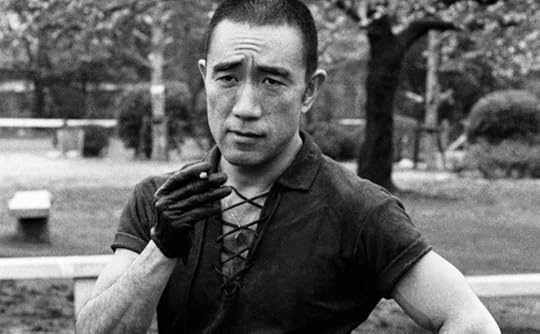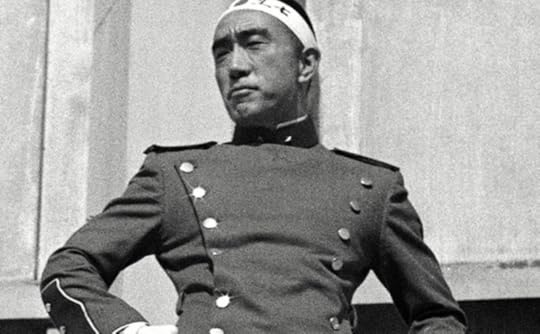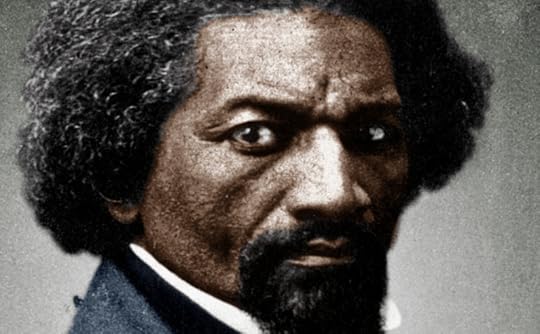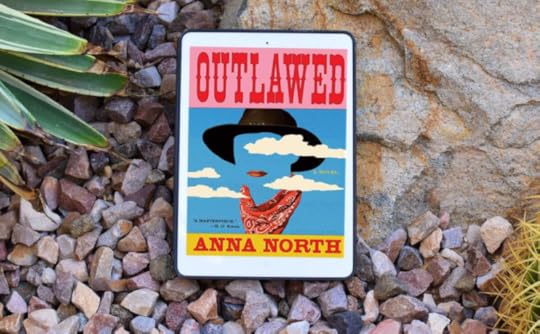Jacke Wilson's Blog, page 22
July 23, 2021
The History of Literature #314 – Gabriel García Márquez (with Patricia Engel)

Author Patricia Engel joins Jacke to talk about her childhood in New Jersey, her artistic family, her lifelong love of stories and writing, her new novel Infinite Country, and “The Incredible and Sad Tale of Innocent Eréndira and Her Heartless Grandmother” by Gabriel García Márquez, a story she first read as a 14-year-old and which she returns to often.
PATRICIA ENGEL is the author of Infinite Country, a Reese’s Book Club pick, Esquire Book Club pick, Indie Next pick, Amazon Best Book of the Month, and more.
Her other books include The Veins of the Ocean, which won the Dayton Literary Peace Prize and was named a New York Times Editors’ Choice and a San Francisco Chronicle Best Book of the Year; It’s Not Love, It’s Just Paris, which won the International Latino Book Award, and of Vida, a finalist for the PEN/Hemingway Fiction Award and the Young Lions Fiction Award; winner of a Florida Book Award, International Latino Book Award and Independent Publisher Book Award, longlisted for the Story Prize and the Dayton Literary Peace Prize, and named a Barnes & Noble Discover Great New Writers selection and a New York Times Notable Book of the Year. For Vida, Patricia was the first woman to be awarded Colombia’s national prize in literature, the 2017 Premio Biblioteca de Narrativa Colombiana.
She has been awarded fellowships from the Guggenheim Foundation, the National Endowment for the Arts, the Florida Division of Cultural Affairs, Bread Loaf Writers’ Conference, Hedgebrook, and Key West Literary Seminar among others, and is the recipient of an O. Henry Award.
Help support the show at patreon.com/literature or historyofliterature.com/shop. (We appreciate it!) Find out more at historyofliterature.com, jackewilson.com, or by following Jacke and Mike on Twitter at @thejackewilson and @literatureSC. Or send an email to jackewilsonauthor@gmail.com.
New!!! Looking for an easy to way to buy Jacke a coffee? Now you can at paypal.me/jackewilson. Your generosity is much appreciated!
The History of Literature Podcast is a member of Lit Hub Radio and the Podglomerate Network. Learn more at www.thepodglomerate.com/historyofliterature.
July 22, 2021
The History of Literature #313 – “Spring Snow” by Yukio Mishima

After taking a look at the eventful life and dramatic death of Yukio Mishima in our last episode, Jacke turns to a closer look at the works of Mishima, including appraisals by Jay McInerney and Haruki Murakami, before turning to a deep dive into the world of Spring Snow, the first volume in Mishima’s four-book masterpiece The Sea of Fertility.
Help support the show at patreon.com/literature or historyofliterature.com/shop. (We appreciate it!) Find out more at historyofliterature.com, jackewilson.com, or by following Jacke and Mike on Twitter at @thejackewilson and @literatureSC. Or send an email to jackewilsonauthor@gmail.com.
New!!! Looking for an easy to way to buy Jacke a coffee? Now you can at paypal.me/jackewilson. Your generosity is much appreciated!
The History of Literature Podcast is a member of Lit Hub Radio and the Podglomerate Network. Learn more at www.thepodglomerate.com/historyofliterature.
July 21, 2021
The History of Literature #312 – Yukio Mishima

In November of 1970, the most famous novelist in Japan dropped off the final pages of his masterpiece with his publisher, then went to a military office in Tokyo, where he and a small band of supporters took the commander hostage. The novelist – whose name was Yukio Mishima – then appeared on the balcony before a crowd of a thousand soldiers and supporters. After exhorting them to overthrow the Japanese government and return Japan to its proud imperial past, he stepped away from the balcony and committed seppuku, the ritualized suicide made famous by samurai warriors from Japan’s legendary shogunate period. Who was Mishima? What brought him to this point in his life?
In this episode, Jacke takes a look at the turbulent life and dramatic death of Yukio Mishima (1925-1970). PLUS a special announcement!!
Help support the show at patreon.com/literature or historyofliterature.com/shop. (We appreciate it!) Find out more at historyofliterature.com, jackewilson.com, or by following Jacke and Mike on Twitter at @thejackewilson and @literatureSC. Or send an email to jackewilsonauthor@gmail.com.
New!!! Looking for an easy to way to buy Jacke a coffee? Now you can at paypal.me/jackewilson. Your generosity is much appreciated!
The History of Literature Podcast is a member of Lit Hub Radio and the Podglomerate Network. Learn more at www.thepodglomerate.com/historyofliterature.
July 20, 2021
The History of Literature #311 – Frederick Douglass Learns to Read

Jacke takes a look at adult literacy and continuing education, anti-literacy laws in nineteenth-century America, and two famous passages from the Narrative of the Life of Frederick Douglass (1845), in which the young slave manages to overcome obstacles and teach himself to read and write.
Help support the show at patreon.com/literature or historyofliterature.com/shop. (We appreciate it!) Find out more at historyofliterature.com, jackewilson.com, or by following Jacke and Mike on Twitter at @thejackewilson and @literatureSC. Or send an email to jackewilsonauthor@gmail.com.
New!!! Looking for an easy to way to buy Jacke a coffee? Now you can at paypal.me/jackewilson. Your generosity is much appreciated!
The History of Literature Podcast is a member of Lit Hub Radio and the Podglomerate Network. Learn more at www.thepodglomerate.com/historyofliterature.
July 19, 2021
The History of Literature #310 – Lorraine Hansberry

When Lorraine Hansberry (1930-1965) was a child, her father made the Hansberry name famous by fighting for justice in a case that went all the way to the Supreme Court. By the time she was thirty, she herself was famous as the author of A Raisin in the Sun (1959), which tells the story of a black family attempting to purchase a home in a white neighborhood. In this episode, we look at the brief life and towering accomplishments of the woman who was the godmother to Nina Simone’s daughter and whose remarks to talented young African American students inspired Simone’s song “Young, Gifted and Black.”
Help support the show at patreon.com/literature or historyofliterature.com/shop. (We appreciate it!) Find out more at historyofliterature.com, jackewilson.com, or by following Jacke and Mike on Twitter at @thejackewilson and @literatureSC. Or send an email to jackewilsonauthor@gmail.com.
New!!! Looking for an easy to way to buy Jacke a coffee? Now you can at paypal.me/jackewilson. Your generosity is much appreciated!
The History of Literature Podcast is a member of Lit Hub Radio and the Podglomerate Network. Learn more at www.thepodglomerate.com/historyofliterature.
July 18, 2021
The History of Literature #309 – HoL Presents: The Secret Lives of Church Ladies by Deesha Philyaw (A Storybound Project)

The History of Literature presents a short story by Deesha Philyaw, author of The Secret Lives of Church Ladies, produced by Storybound. PLUS! In preparation for our Writers Block episode, we hear from three great writers – Virginia Woolf, Iris Murdoch, and Franz Kafka – who privately (and achingly) wrote about not writing. Enjoy!
Deesha Philyaw’s debut short story collection, The Secret Lives of Church Ladies, was a finalist for the 2020 National Book Award for Fiction, a finalist for The Story Prize (2020/2021), and longlisted for the 2021 PEN/Faulkner Award for Fiction. Her work has been listed as Notable in the Best American Essays series, and her writing on race, parenting, gender, and culture has appeared in The New York Times, The Washington Post, McSweeney’s, The Rumpus, Brevity, dead housekeeping, Apogee Journal, Catapult, Harvard Review, ESPN’s The Undefeated, The Baltimore Review, TueNight, Ebony and Bitch magazines, and various anthologies. Deesha is a Kimbilio Fiction Fellow and a past Pushcart Prize nominee for essay writing in Full Grown People.
The music composition and sound design for this story is by Glasys. Glasys (Gil Assayas) is a pianist, synthesist, producer and vocalist who delivers intricate virtuosic keyboard parts, electronic soundscapes and impassioned vocals in one package that combines his many influences including Electronic music, Alternative Rock, Jazz and Classical music.
Storybound is a radio theater program designed for the podcast age. Hosted by Jude Brewer and with original music composed for each episode, the podcast features the voices of today’s literary icons reading their essays, poems, and fiction.
Help support the History of Literature Podcast at patreon.com/literature or historyofliterature.com/shop. (We appreciate it!) Find out more at historyofliterature.com, jackewilson.com, or by following Jacke and Mike on Twitter at @thejackewilson and @literatureSC. Or send an email to jackewilsonauthor@gmail.com.
New!!! Looking for an easy to way to buy Jacke a coffee? Now you can at paypal.me/jackewilson. Your generosity is much appreciated!
The History of Literature Podcast is a member of Lit Hub Radio and the Podglomerate Network. Learn more at www.thepodglomerate.com/historyofliterature.
July 17, 2021
The History of Literature #308 – New Westerns (with Anna North)

Anna North, author and journalist, joins us for a full discussion of the Western genre, how twenty-first-century authors have revived the form with modern-day sensibilities and a more layered understanding of history, her love of George Herriman’s quietly subversive Krazy Kat comics, and her new novel Outlawed, a riveting adventure story of a fugitive girl, a mysterious gang of robbers, and their dangerous mission to transform the Wild West.
Help support the show at patreon.com/literature or historyofliterature.com/shop. (We appreciate it!) Find out more at historyofliterature.com, jackewilson.com, or by following Jacke and Mike on Twitter at @thejackewilson and @literatureSC. Or send an email to jackewilsonauthor@gmail.com.
New!!! Looking for an easy to way to buy Jacke a coffee? Now you can at paypal.me/jackewilson. Your generosity is much appreciated!
The History of Literature Podcast is a member of Lit Hub Radio and the Podglomerate Network. Learn more at www.thepodglomerate.com/historyofliterature.
July 16, 2021
The History of Literature #307 – Keats’s Ode to Psyche

In 1819, John Keats wrote a letter to his brother George and his sister-in-law Giorgiana, who had recently moved from London to America. In the letter, Keats included a poem, which he introduced as “the first and the only one with which I have taken even moderate pains…I hope it will encourage me to write other things in even a more peaceable and healthy spirit.” The poem was called “Ode to Psyche,” and it has taken its place among five other poems Keats wrote in 1819 and that are now called The Great Odes. In this episode, we follow our conversation with Anahid Nersessian by examining her favorite of the Great Odes, as we explore the myth of Cupid and Psyche and the way Keats’s imagination unlocked the power of an underserved goddess.
Help support the show at patreon.com/literature or historyofliterature.com/shop. (We appreciate it!) Find out more at historyofliterature.com, jackewilson.com, or by following Jacke and Mike on Twitter at @thejackewilson and @literatureSC. Or send an email to jackewilsonauthor@gmail.com.
New!!! Looking for an easy to way to buy Jacke a coffee? Now you can at paypal.me/jackewilson. Your generosity is much appreciated!
The History of Literature Podcast is a member of Lit Hub Radio and the Podglomerate Network. Learn more at www.thepodglomerate.com/historyofliterature.
July 15, 2021
The History of Literature #306 – Keats’s Great Odes (with Anahid Nersessian)

In 1819, John Keats quit his job as an assistant surgeon, abandoned an epic poem he was writing, and focused his poetic energies on shorter works. What followed was one of the most fertile periods in the history of poetry, as in a few months’ time Keats completed six masterpieces, including such celebrated classics as “To Autumn,” “Ode to a Nightingale,” and “Ode on a Grecian Urn.” Now, two hundred years later, an American scholar has written an exciting new book called Keats’s Odes: A Lover’s Discourse, in which she gathers and revisits the Great Odes, viewing them through a personal prism.
Anahid Nersessian was born and grew up in New York City. She received her Ph.D. from the University of Chicago, and has taught at Columbia University and UCLA. Her first book, Utopia, Limited: Romanticism and Adjustment was published by Harvard University Press in 2015, and her second book, The Calamity Form: On Poetry and Social Life, by the University of Chicago in 2020. She lives in Los Angeles, CA.
Help support the show at patreon.com/literature or historyofliterature.com/shop. (We appreciate it!) Find out more at historyofliterature.com, jackewilson.com, or by following Jacke and Mike on Twitter at @thejackewilson and @literatureSC. Or send an email to jackewilsonauthor@gmail.com.
New!!! Looking for an easy to way to buy Jacke a coffee? Now you can at paypal.me/jackewilson. Your generosity is much appreciated!
The History of Literature Podcast is a member of Lit Hub Radio and the Podglomerate Network. Learn more at www.thepodglomerate.com/historyofliterature.
July 14, 2021
The History of Literature #305 – The Remains of the Day

Following up on the recommendation of our guest Chigozie Obioma, Jacke takes a closer look at Kazuo Ishiguro’s novel The Remains of the Day, including the story of how Ishiguro came to write it, what he found missing, and how the singer Tom Waits helped show Ishiguro how to transform the novel into great art.
Help support the show at patreon.com/literature or historyofliterature.com/shop. (We appreciate it!) Find out more at historyofliterature.com, jackewilson.com, or by following Jacke and Mike on Twitter at @thejackewilson and @literatureSC. Or send an email to jackewilsonauthor@gmail.com.
New!!! Looking for an easy to way to buy Jacke a coffee? Now you can at paypal.me/jackewilson. Your generosity is much appreciated!
The History of Literature Podcast is a member of Lit Hub Radio and the Podglomerate Network. Learn more at www.thepodglomerate.com/historyofliterature.



